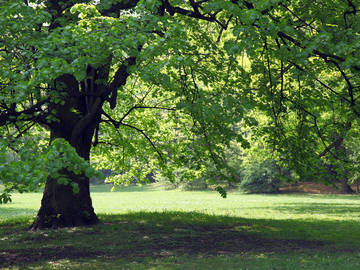
noun
- the comparative darkness caused by the interception or screening of rays of light from an object, place, or area.
- a place or an area of comparative darkness, as one sheltered from the sun.
- window shade.
- a lampshade.
- shades,
- darkness gathering at the close of day: Shades of night are falling.
- Informal.sunglasses.
- a reminder of something: shades of the Inquisition.
- Usually shades. a secluded or obscure place: He was living in the shades.
- comparative obscurity.
- a specter or ghost.
- Greek and Roman Religion. one of the spirits of the dead inhabiting Hades.
- a shadow.
- the degree of darkness of a color, determined by the quantity of black or by the lack of illumination.
- comparative darkness, as the effect of shadow or dark and light, in pictorial representation; the dark part, or a dark part, of a picture or drawing.
- a slight variation or degree: a shade of difference.
- a little bit; touch, especially of something that may change the color of or lighten or darken something else: coffee with a shade of cream.
- anything used for protection against excessive light, heat, etc.
- (in architectural shades and shadows) a shadow upon those parts of a solid that are tangent to or turned away from the parallel rays from the theoretical light source.Compare shadow(def 11).
- the shades, Hades, as the abode of the spirits of the dead.
verb (used with object), shad·ed, shad·ing.
- to produce shade in or on.
- to obscure, dim, or darken.
- to screen or hide from view.
- to protect (something) from light, heat, etc., by or as by a screen: to shade the eyes from a bright light.
- to cover or screen (a candle, light, etc.): to shade a light to protect the eyes.
- Fine Arts.
- to introduce degrees of darkness into (a drawing or painting) in order to render light and shadow or give the effect of color.
- to render the values of light and dark in (a drawn figure, object, etc.), especially in order to create the illusion of three-dimensionality.
- to change by imperceptible degrees into something else.
- to reduce (the price) by way of a concession.
- Slang. to insult, criticize, or disrespect (a person or thing) in an indirect, artful manner: He got into a fight with someone who shaded his mom.
verb (used without object), shad·ed, shad·ing.
- to pass or change by slight graduations, as one color, quality, or thing into another.
Verb Phrases
- shade up, Agriculture. to take shelter (as livestock) from the sun.
Idioms
- cast/put someone in/into the shade, to make another person’s efforts seem insignificant by comparison; surpass: Her playing puts mine in the shade.
- throw shade, Slang. to insult, criticize, or disrespect a person or thing in an indirect, artful manner:He threw some shade at his former boss.
noun
- relative darkness produced by the blocking out of light
- a place made relatively darker or cooler than other areas by the blocking of light, esp sunlight
- a position of relative obscurity
- something used to provide a shield or protection from a direct source of light, such as a lampshade
- a darker area indicated in a painting, drawing, etc, by shading
- a colour that varies slightly from a standard colour due to a difference in hue, saturation, or luminositya darker shade of green
- a slight amounta shade of difference
- literary a ghost
- an archaic word for shadow
- put in the shade to appear better than (another); surpass
verb (mainly tr)
- to screen or protect from heat, light, view, etc
- to make darker or dimmer
- to represent (a darker area) in (a painting, drawing, etc), by means of hatching, using a darker colour, etc
- (also intr) to change or cause to change slightly
- to lower (a price) slightly
n.Middle English schade, Kentish ssed, from late Old English scead “partial darkness; shelter, protection,” also partly from sceadu “shade, shadow, darkness; shady place, arbor, protection from glare or heat,” both from Proto-Germanic *skadwaz (cf. Old Saxon skado, Middle Dutch scade, Dutch schaduw, Old High German scato, German Schatten, Gothic skadus), from PIE *skot-wo-, from root *skot- “dark, shade” (cf. Greek skotos “darkness, gloom,” Albanian kot “darkness,” Old Irish scath, Old Welsh scod, Breton squeut “darkness,” Gaelic sgath “shade, shadow, shelter”). Figurative use in reference to comparative obscurity is from 1640s. Meaning “a ghost” is from 1610s; dramatic (or mock-dramatic) expression “shades of _____” to invoke or acknowledge a memory is from 1818, from the “ghost” sense. Meaning “lamp cover” is from 1780. Sense of “window blind” first recorded 1845. Meaning “cover to protect the eyes” is from 1801. Meaning “grade of color” first recorded 1680s; that of “degree or gradiation of darkness in a color” is from 1680s (cf. nuance, from French nue “cloud”). Meaning “small amount or degree” is from 1782. v.c.1400, “to screen from light or heat,” from shade (n.). From 1520s as “to cast a shadow over;” figurative use in this sense from 1580s. Sense in painting and drawing is from 1797. In reference to colors, 1819. Related: Shaded; shading.
 Liberal Dictionary English Dictionary
Liberal Dictionary English Dictionary